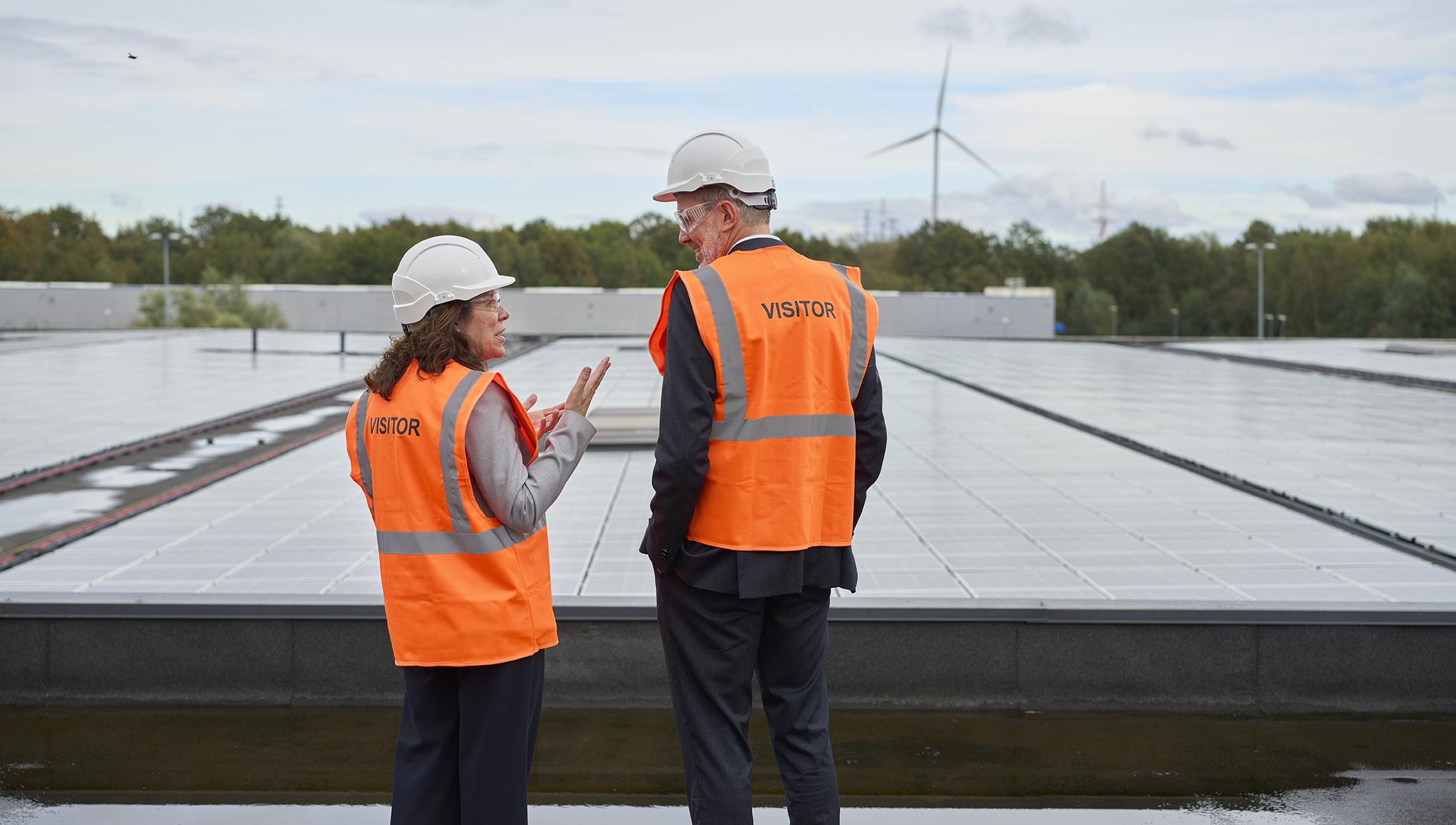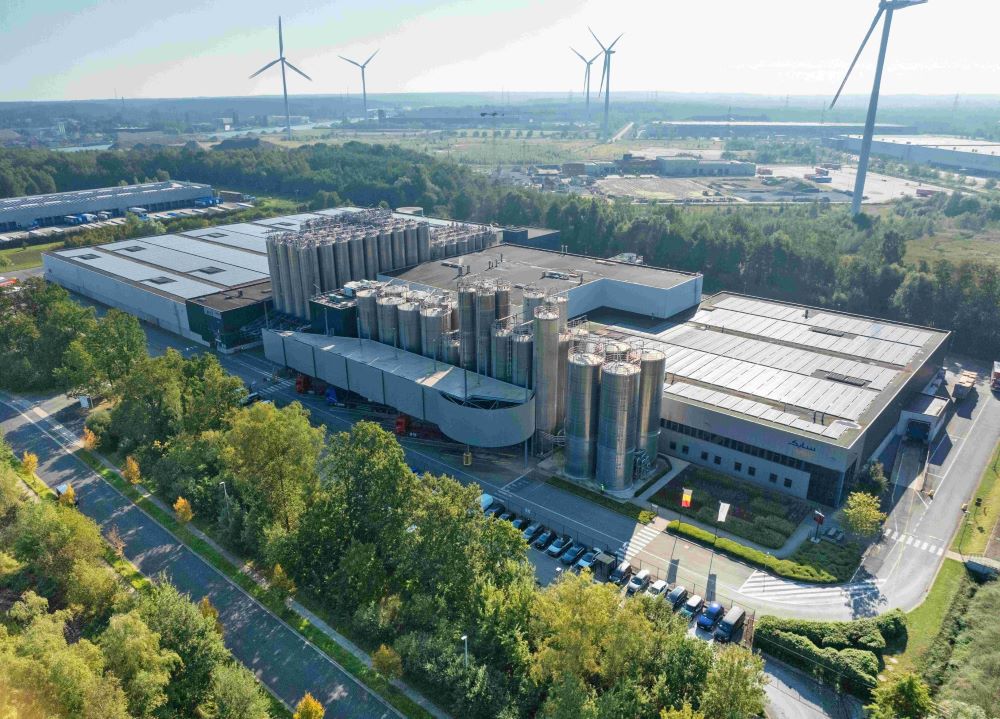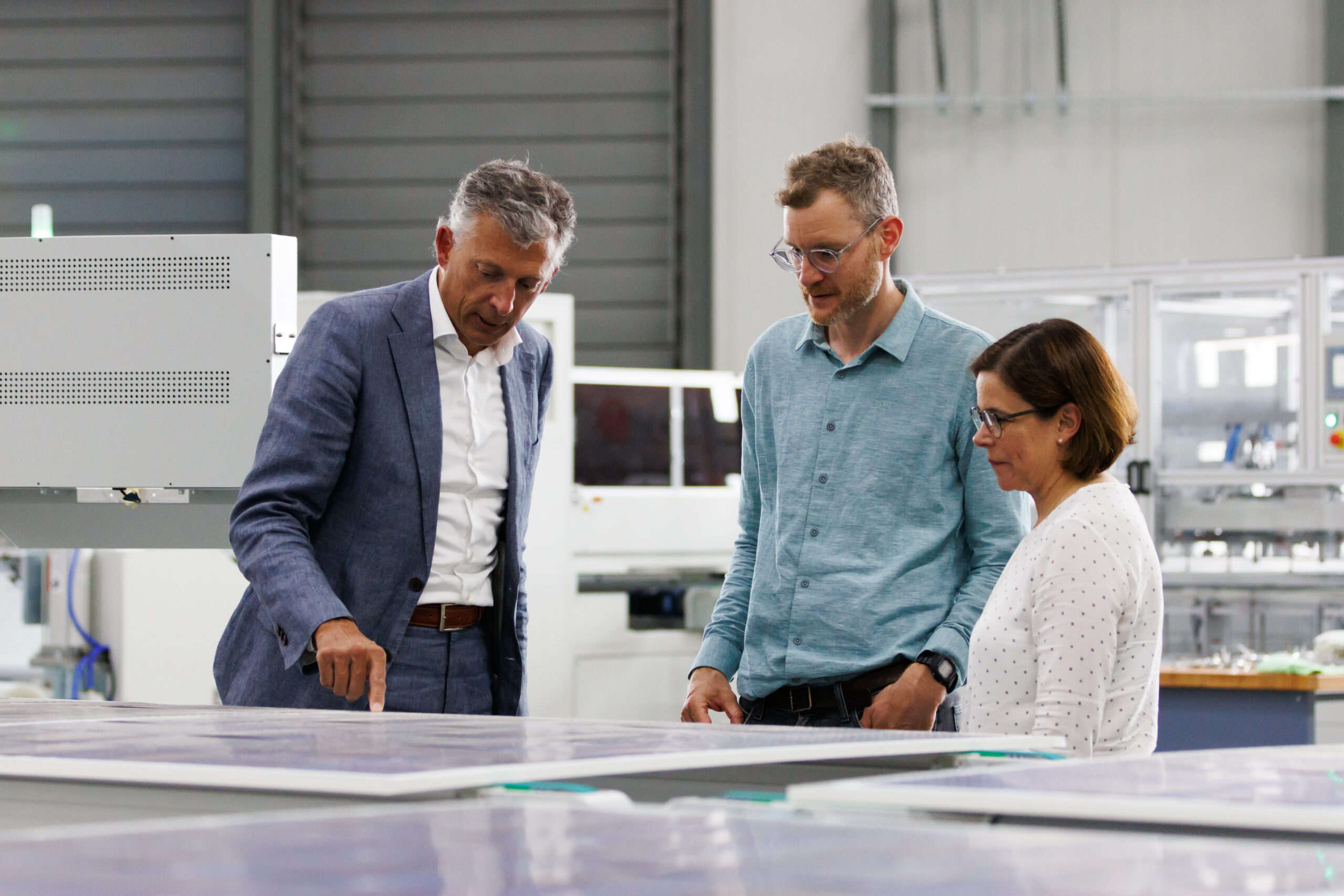Solutions for Solar Panels
We pioneered lightweight, fully recyclable plastic solar panels and made history with one of the world's first major solar installations at SABIC's manufacturing site in Genk, Belgium.
2024 saw the inauguration of one of the world's first and largest solar installations using fully recyclable plastic materials at SABIC's manufacturing site in Genk, Belgium.
The lightweight plastic solar panels have been developed in a collaboration between SABIC and Solarge, a Dutch start-up in circular solar panels, and use SABIC's proprietary polypropylene (efPP) compounds. Unlike traditional panels, these panels are entirely free from intentionally added PFAS, lighter, and composed of fully separable layers, and feature a design that ensures every component can be disassembled and recycled at the end of its 25-year lifespan.

SOLAR INSTALLATION AT THE SABIC FACILITY IN GENK BELGIUM

The panels, manufactured out of materials produced at SABIC's Genk facility, boast a 50% weight reduction compared to conventional glass-based panels and a 25% lower carbon footprint, making them excellent candidates for industrial roofs with limited load-bearing capacities. General Manager of Polymers Technology & Innovation Lada Kurelec highlighted the company's role: “This project embodies two key drivers for SABIC: innovation and collaboration to meet market needs.”
The panels were first piloted on the Genk facility's roof in 2023, with an initial 50-panel installation. The success of the pilot paved the way for the rapid and full-scale deployment of 4,600 panels covering the entire facility's rooftop, capable of generating 2,000 megawatt hours of renewable electricity annually – enough to power 700 households.
“The energy generated from the new solar panels will primarily supply the plant itself, reducing Scope 2 CO₂ emissions,” explained Lada Kurelec. Solarge CEO Jan Vesseur shed light on the broader impact of the project, highlighting the power of industry partnerships: “Our recyclable panels unlock new possibilities for weight-restricted roofs. This collaboration with SABIC exemplifies how innovation and sustainability can drive global energy transitions.”

Disclaimer: This abridged interactive version of the SABIC Integrated Annual Report 2024 is based on the original PDF report published on this website. In case of any discrepancy, the original PDF report will prevail.
